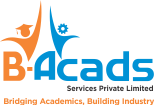Home / Industry - Academia Connect /
Drive Innovation: Join Our Academic Committee
Academic Institutions form several committees within the college to effective decision making and smooth functioning of the institute.
Some of these committees need to have industry professionals represented on them, as the Industry is an important stakeholder for academic institutions.
The involvement of working professionals sends a positive signal to potential students, employers, and the broader community that the institute is committed to producing well-prepared graduates as per the demands of the professional world.
To learn more about various committees, scroll below
Are you interested in taking positions on such committees, Register Now and increase your visibility and connectivity with institutes registered on this platform

What is Board of Studies?
The Board of Studies (BoS) is a crucial administrative body within educational institutions, particularly universities and colleges. Its primary responsibility is to oversee the development, review, and maintenance of academic programs and curricula within a specific department or discipline.
What is the Composition of Board of Studies?
The composition and responsibilities of a Board of Studies can vary depending on the institution’s structure and policies, but typically include senior faculty members and industry professionals who are subject experts in their respective fields.
What is the frequency of Board of Studies meeting?
Generally once a year
What is the Responsibility of Board of Studies?
- Curriculum Development:
One of the Board of Studies' primary functions is developing and updating the curriculum for the department's academic programs. This involves designing courses, determining course content, setting learning objectives, and ensuring alignment with academic standards and regulations.
- Review and Revision:
The BoS regularly reviews and revises existing academic programs and courses to ensure their relevance, effectiveness, and quality. This may involve updating course content, incorporating new developments in the field, and responding to feedback from students, faculty, and industry stakeholders.
- Assessment and Evaluation:
The Board of Studies establishes mechanisms for assessing student learning outcomes and evaluating the effectiveness of academic programs. It may develop assessment criteria, design examinations, and oversee processes for assessing student performance.
- Quality Assurance:
Ensuring the quality of academic programs and courses is a key responsibility of the BoS. This involves monitoring adherence to academic standards, evaluating teaching methods and resources, and implementing measures to enhance program quality and effectiveness.
- Advisory Role:
The Board of Studies may advise the department or university administration on matters related to academic policies, regulations, and strategic planning.
What is Internal Quality Assurance Cell (IQAC)?
Internal Quality Assurance Cell plays a pivotal role in promoting quality culture, accountability, and transparency within higher education institutions, ultimately contributing to the overall advancement and reputation of the institution.
What is the composition of IQAC?
IQAC comprises of a management representative, director/principal of the institute, faculty members, industry professional Alumni, students and nominee of local society.
What is the frequency of IQAC meets?
IQAC meets are conducted once in a quarter
What is the responsibility of IQAC?
- Development and application of quality benchmarks.
- Parameters for various academic and administrative activities of the institution.
- Facilitating the creation of a learner-centric environment conducive to quality education and faculty maturation to adopt the required knowledge and technology for participatory teaching and learning process.
- Collection and analysis of feedback from all stakeholders on quality-related institutional processes.
- Dissemination of information on various quality parameters to all stakeholders.
- Organization of inter and intra institutional workshops, seminars on quality related themes and promotion of quality circles.
- Acting as a nodal agency of the Institution for coordinating quality-related activities, including adoption and dissemination of best practices.
- Development and maintenance of institutional database through MIS for the purpose of maintaining /enhancing the institutional quality.
- Periodical conduct of Academic and Administrative Audit and its follow-up.
- Accreditation Requirements.
What is Governing Council?
The Governing Council plays a pivotal role in guiding the strategic direction, ensuring effective governance, and upholding the academic institution's values and mission. Its decisions and actions have far-reaching implications for the institution's reputation, performance, and impact on society.
What is composition of Governing Council?
Head of the complex, Director/Principal of the institute, senior faculty, industry representatives.
Frequency of meets of Governing Council
1 or 2 times in a year, depending on the institution
Roles & Responsibilities of Governing Council
- Setting Strategic Direction:
The Governing Council sets long-term objectives and directions to guide the institution's growth and development.
- Policy Formulation and Governance:
The Council establishes policies, rules, and regulations governing various aspects of the institution, including academic programs, admissions, finances, human resources, and infrastructure.
- Appointment and Evaluation of Leadership:
The Governing Council evaluates the performance of the institute and its leadership style.
- Financial Oversight:
The Council oversees the institution's finances, including budget approval, financial planning, monitoring expenditures, and ensuring fiscal sustainability. It may also review audit reports and financial statements to Ensure transparency and accountability.
- Quality Assurance and Accreditation:
The Governing Council monitors the institution's quality of education and academic standards. It may establish mechanisms for quality assurance, review accreditation reports, and take corrective actions to address deficiencies.
- Strategic Partnerships and Collaborations:
The Council may explore and approve strategic partnerships, collaborations, and alliances with other institutions, industry partners, research organizations, and international bodies to enhance the institution's academic and research endeavors.
- Community Engagement and Outreach:
The Governing Council fosters engagement with stakeholders, including students, faculty, alumni, industry, government, and the local community. It may support initiatives for community development, social responsibility, and public relations.
- Conflict Resolution and Risk Management:
The Council addresses conflicts, disputes, or challenges that may arise within the institution. It also assesses risks, develops mitigation strategies, and ensures compliance with legal and ethical standards.
- Decision Making:
The Governing Council makes decisions on critical issues affecting the institution. Decisions are usually made through consensus or voting, with the Chairperson casting the deciding vote if needed.
- Transparency and Accountability:
The Governing Council operates with transparency and accountability, providing stakeholders with access to information, reports, and decisions. It may publish meeting minutes, annual reports, and financial statements to ensure transparency and build trust.
What is College Development Committee (CDC)
The College Development Committee plays a crucial role in guiding the strategic direction, ensuring effective governance, and driving the college's development agenda. Its efforts enhance the quality of education, infrastructure, and services, thereby enriching the learning experience and fostering institutional excellence.
What is composition of College Development Committee (CDC)
The College Development Committee is typically constituted according to the guidelines of the respective university or college governing body. The CDC usually comprises a mix of internal and external stakeholders, including Principal/Head of Institution, faculty members, administrative staff, Alumni, Industry Representatives, local community members etc.
Frequency of meetings of CDC
The frequency depends on the rules set by University
Functions of CDC
- Strategic Planning:
The CDC is responsible for developing and implementing strategic plans and initiatives for the college's overall development. This may include setting goals, priorities, and action plans to enhance academic excellence, infrastructure, and institutional reputation.
- Infrastructure Development:
The committee oversees the planning, implementation, and maintenance of infrastructure projects within the college, including construction, renovation, and upgrading of buildings, classrooms, laboratories, libraries, and other facilities.
- Academic Program Development:
The CDC reviews and evaluates existing academic programs and recommends the introducing of new programs or modifications to existing ones to meet the evolving needs of students and the industry.
- Resource Mobilization:
The committee identifies sources of funding and resources for college development projects and initiatives.
- Quality Assurance:
The CDC monitors and ensures the quality of education, teaching, and learning processes within the college. It may establish mechanisms for curriculum review, faculty development, student assessment, and accreditation readiness.
- Student Welfare:
The committee addresses issues related to student welfare, support services, and extracurricular activities. It may develop policies and programs to promote student engagement, diversity, inclusivity, and holistic development.
- Monitoring and Evaluation:
The CDC monitors the progress of development initiatives, evaluates outcomes, and conducts periodic reviews to assess the effectiveness of interventions. It may prepare reports, dashboards, and performance indicators to track progress and inform decision-making.
- Transparency and Accountability:
The CDC is transparent and accountable, providing stakeholders with access to information, reports, and decisions. To ensure transparency and build trust, it may publish meeting minutes, annual reports, and financial statements.





